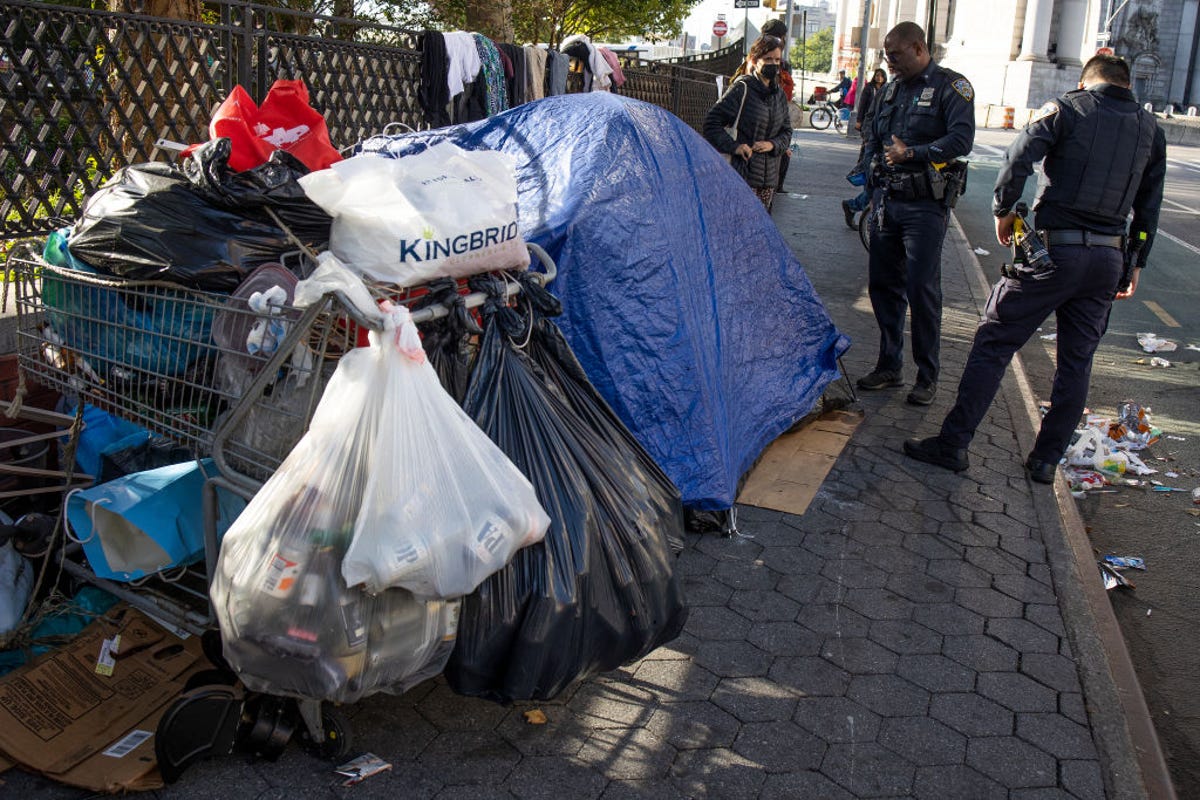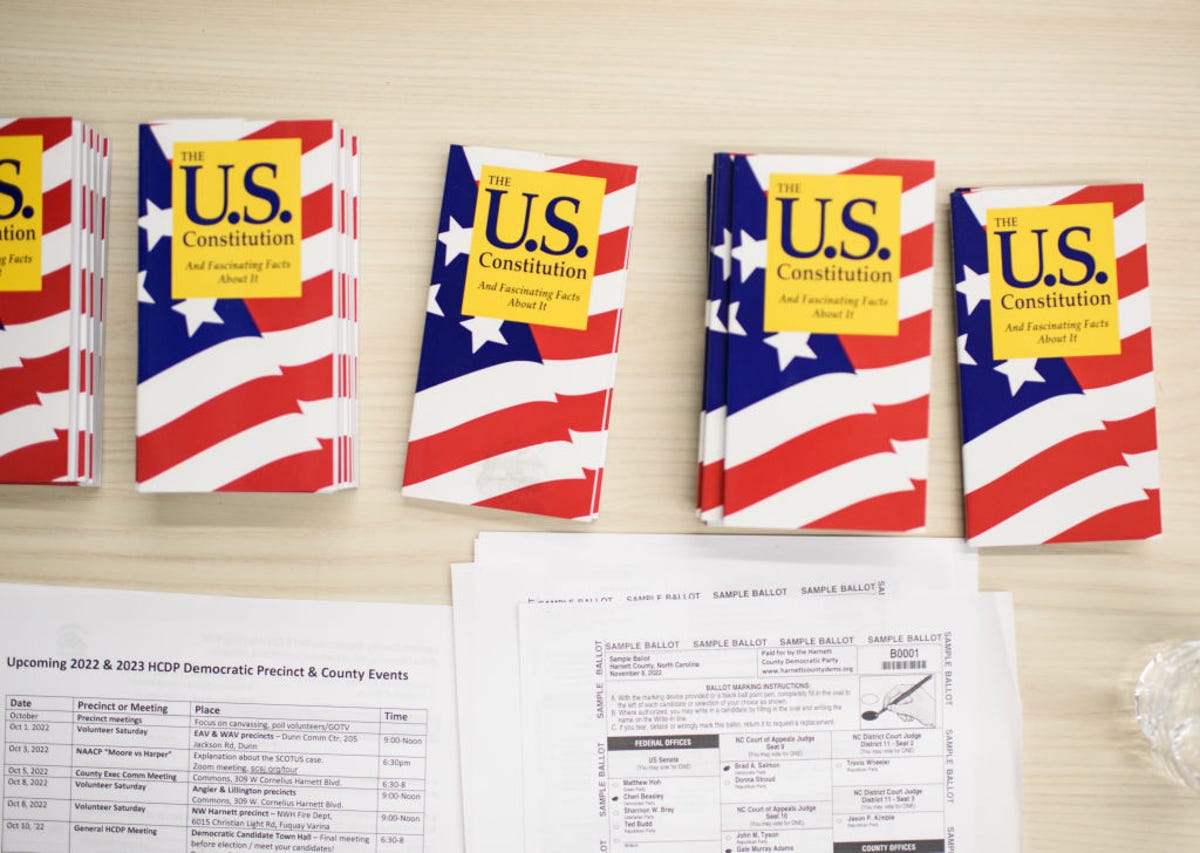How to Survive Election Day When You’re Not Allowed to Vote
There is a visceral thrill and power to voting and in the last 17 years, back home in Ireland, I have not missed an opportunity to cast my vote. Having moved to the United States (hopefully forever) earlier this year, I find myself in a political no man’s land as the November midterm elections loom. I can’t vote until I’m a US citizen.
It is disturbing that I cannot make my voice heard in a new country whose politics I have followed closely all my life. I knew it would be like this before I came, but the feeling of powerlessness is more frustrating than I expected.
Not being able to vote also feels like the perfect excuse to retire completely from politics as news reports assault my phone and computer ahead of the midterms. But the same sense of social responsibility that has made me vote in Ireland year after year just keeps tugging at my brain, so I’m eager to get involved.
But how?
The view from abroad
Growing up in Ireland in the 1990s, I had a skewed view of US politics that was heavily weighted in favor of Democrats. Despite intense media focus on former President Bill Clinton’s infidelity, Democrat-led America of the time played a crucial role in ending troubles in Northern Ireland. This helped foster romanticized ideas about America in my adolescent brain.
My perception of American politics became less romantic under the Republican administration of the next decade, led by President George W. Bush (being a cynical teenager probably didn’t help). The US military used Irish airports as a stopover on its way to Iraq, making neutral Ireland appear like an accomplice in the controversial post-9/11 war on terror.

The use of Irish airports by the US military led to protests in the attacks.
Julien Behal/Getty Images
It wasn’t until early in my journalism career that I started thinking about the mechanics of US politics, when I realized the importance of the press in holding elected officials accountable. With the 2012 presidential election approaching, I was determined to develop as balanced a perspective as possible. During this period of intense curiosity, I read Irish journalist Terry Prone’s 2011 column. In it, she quoted a New York Times column by economist Paul Krugman, who eschewed “the cult of ‘balance,’ the “media’s insistence on portraying both parties as equally wrong and equally guilty on every issue, regardless of the facts.”
I remember feeling at the time that any attempt to take a balanced perspective was hopelessly naïve. (Prone did not respond to my last request for comment on this column.)
I don’t remember the political elements of the election, but I do remember the memory that followed – Clint Eastwood’s empty chairMitt Romney’s Folders full of womenJoe Biden’s bunch of Malarkeys – burned into my memory.
All of which feels downright quaint compared to the drama of 2016 and Trauma 2020. The last six years of US politics have left me – and I’m sure many others – so jaded that it’s easy to forget that much of it is pageantry meant to distract our attention from reality: the day-to-day work of politics can be quite be boring and easy to understand if we don’t get caught up in the theatrics.
The game and reality
Too many people are obsessed with it Game of politics – the endless posturing and high-profile scandals – presumably because decades of well-groomed suits have been seen taunting the other side on obscenely partisan cable television networks. Aren’t they just promoting their personal brand or promoting their latest book?
The proliferation of social media influencers seems to have only made this worse, especially as they feel the need to dig into any hot topic — politics, pop culture, sports, you name it — to keep their name trending and theirs audience focus on them . It all feels terribly narcissistic and keeps pulling us further and further into anger bubbles and away from reality.

This is a depressingly common sight in some parts of New York City, and the solution is unclear.
Andrew Lichtenstein/Getty Images
Strolling the streets of New York City (my new home) for the last few months, surrounded by a sea of people in a place of extreme wealth and poverty has felt like a heavy dose of reality. It’s easy to get caught up in glitz and glamor, but it’s also absolutely heartbreaking to see people who have nothing.
I’ve recently wondered why I look away from the homeless. Your situation seems like a nightmare and if you look at it for more than a moment it feels like you are faced with a problem with infinite possible causes and no obvious solution. It makes me helpless, even more because I can’t vote for decent, fair candidates presenting reasonable improvements.
Political openness
So what can I and other people in my situation do to remain politically aware and engaged, even if we are “outsiders” who cannot vote? We now live in the USA and care about the direction of this country.
For now, as I’m adjusting to life in the US, the easiest way to stay engaged is to have a thoughtful conversation with my partner, friends, and acquaintances, and try to focus on the practical problems we find solutions to can imagine instead of enjoying them the latest trending Twitter nonsense, mocking politicians for minor slips of the tongue or sparked controversy that will fade away in a week.
Entry into intensively discussed topics such as cancellation and Arms Control all too often this leads to discussions about party affiliations and generalities about the dichotomies they can represent. My friends and I can respectfully listen to each other and work from there by assessing the attitudes and characters of local politicians. I can potentially influence the votes that can cast a ballot, and understanding their choices will gradually shape my grasp of the political nuances of issues.

I’d better learn all the fascinating facts about the US Constitution.
Melissa Sue Gerrits/Getty Images
Outside of the conversation, there are other ways I, as a non-voter, can make a short-term difference when it comes to issues that are important to me, such as homelessness. Before moving here, I gave away mountains of books, clothes, and other belongings to local charities, so I know how eager many such organizations are to help, how easy they make it to donate, and what a little rush of endorphin such giving produces .
The less inspiring work will be slogging through the mountains of free political literature I’ve only scanned before – having the patience to sit and read feels like a superpower at times – hoping to find myself in grounded in the reality of politics rather than the theatrics. Ultimately, I want to look at every political issue affecting my new country through the lens of compassion and trusted sources.
Being new to the US gives me an opportunity to shake off my old assumptions and start thinking about politics more rationally. Maybe, just maybe, if I can actually vote again, I’ll be ready.
Citizen Later, if you will.